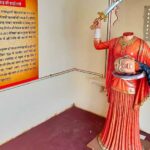‘Welcome to the ClassZoom’

Article By
Sujit Chandra Kumar
“Do you have nallenna?” The girl (wo)manning the provision store, in our sleepy and semi-urban neighbourhood, looked amused. “Nalla enna? You mean good oil? We have good-quality coconut and sunflower oil.” I was at pains to explain that I was looking for the yellowish liquid that is sometimes preferred in the kitchen, especially for your dosas and pickles, to the more viscous and strong-flavoured coconut oil but was not sure if it was called sesame oil or gingelly. Looking perplexed, the girl said, “Mom knows all that but she has gone to the market.” I asked her if she was a student and she pointed to the smart phone that was lying on the table like an orphan. “My online class is on actually.”
While the brightest kids may have reservations about the effectiveness of online classes, most children are enjoying the digital learning experience, thrust upon them by Covid-19. While they do miss the company of their friends, they are enjoying their new-found freedom to listen or switch off with the help of that umbilical cord called headphones. In Chennai, one of my nephews was spotted following an NBA game on his phone even as he was listening to a science lecture on the lap. The cameras are mostly off to save on precious data. The ‘reliance’ on the daily 2GB quota means that even the teacher switches off the camera after a few minutes while the students mute the sound as soon as the class begins.
Closer home, my own teenager insists on slamming the door shut so one doesn’t have much clue about what is going on. His mom insists that he should take a bath before the session starts at 9 am but he is not sure of the relevance. At least apply some hair cream, I suggest helpfully. His friends, he tells us, change into something nice when it comes to the upper body but don’t care much about the bottom.
Most teachers also seem to be enjoying the breaks and non-formal nature of online education. When the Kerala government’s education department kicked off online classes for government schools via live streaming, a few of the teachers turned into stars and landed modelling assignments and film roles. As the novelty faded, so did the sheen of the teacher-celebs.
While visiting a friend, his wife took time out of her online lecture to make tea for us, by giving a surprise 15-minute test for the students. While the kettle was boiling, one could hear a student desperately trying to catch the attention of the teacher.
Talking of online exams, towards the beginning of the lockdown, invigilators were be glued to the camera to see if anyone was using a hidden mobile or tab or even a human to help them out with the answers. Even one shake of a head or involuntary self-talk would invite suspicion. Later, they became relaxed and were resigned to the fact that heavens would not fall down if a student gained a bit of unfair advantage over the others. Open book exam became the mantra as that would allow them to check their texts without the need to break the law.
Parents were the most confused lot. Those who were paying through their nose by way of fine for lack of attendance suddenly saw their children landing cent per cent attendance, for the first time in their academic careers. Cooped up in homes instead of PGs and hostels, students were completing assignments and complying with the requirements. But what about real education? Practicals went for a toss, whether the student was in the science or arts stream. “What is the point of simply going through the motions and earning a certificate that means nothing,” asked the parent of a student specialising in fine arts at a premier institute. “They should actually extend the course by a year and provide some real training.”
Pic Courtesy: Google/ images are subject to copyright








